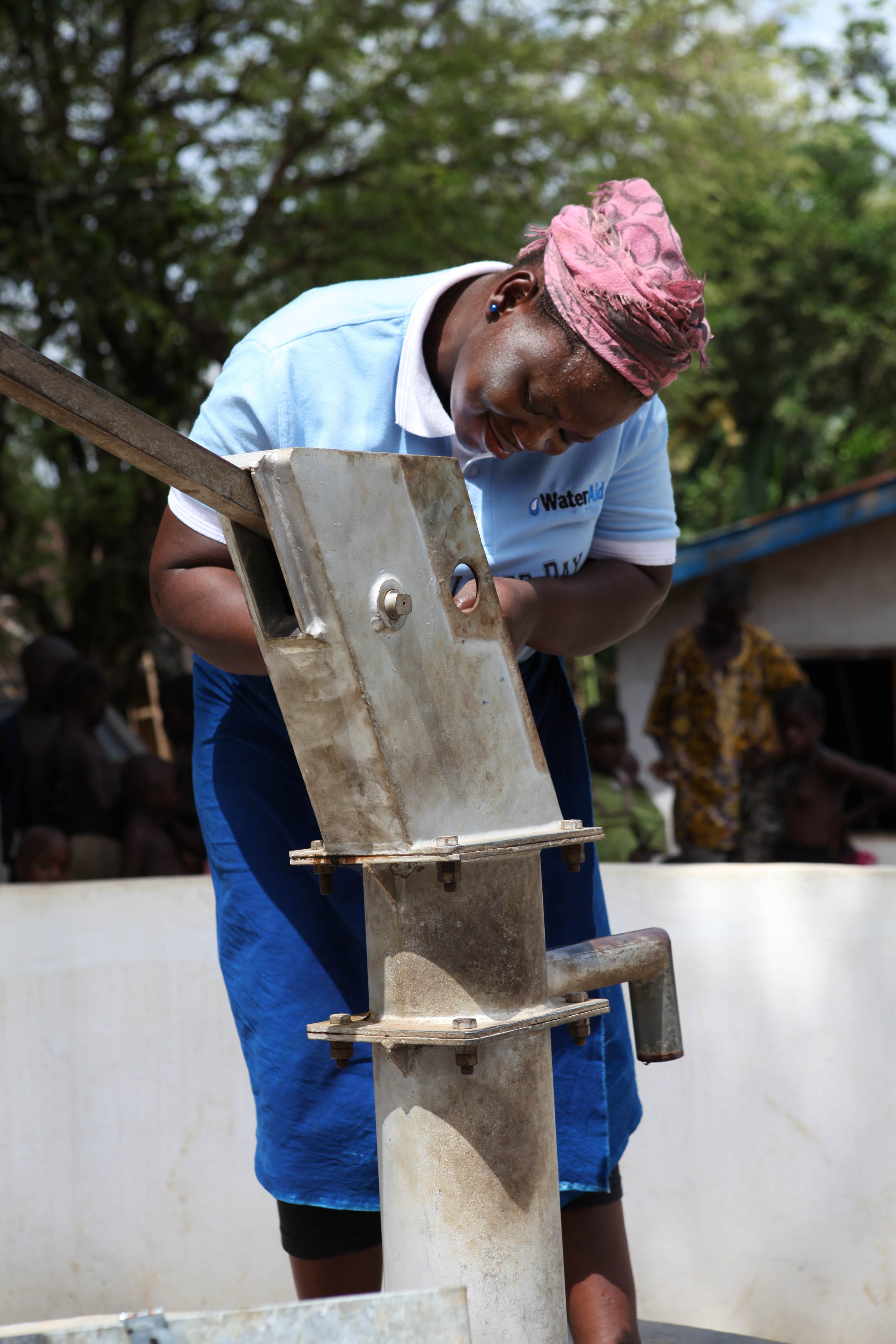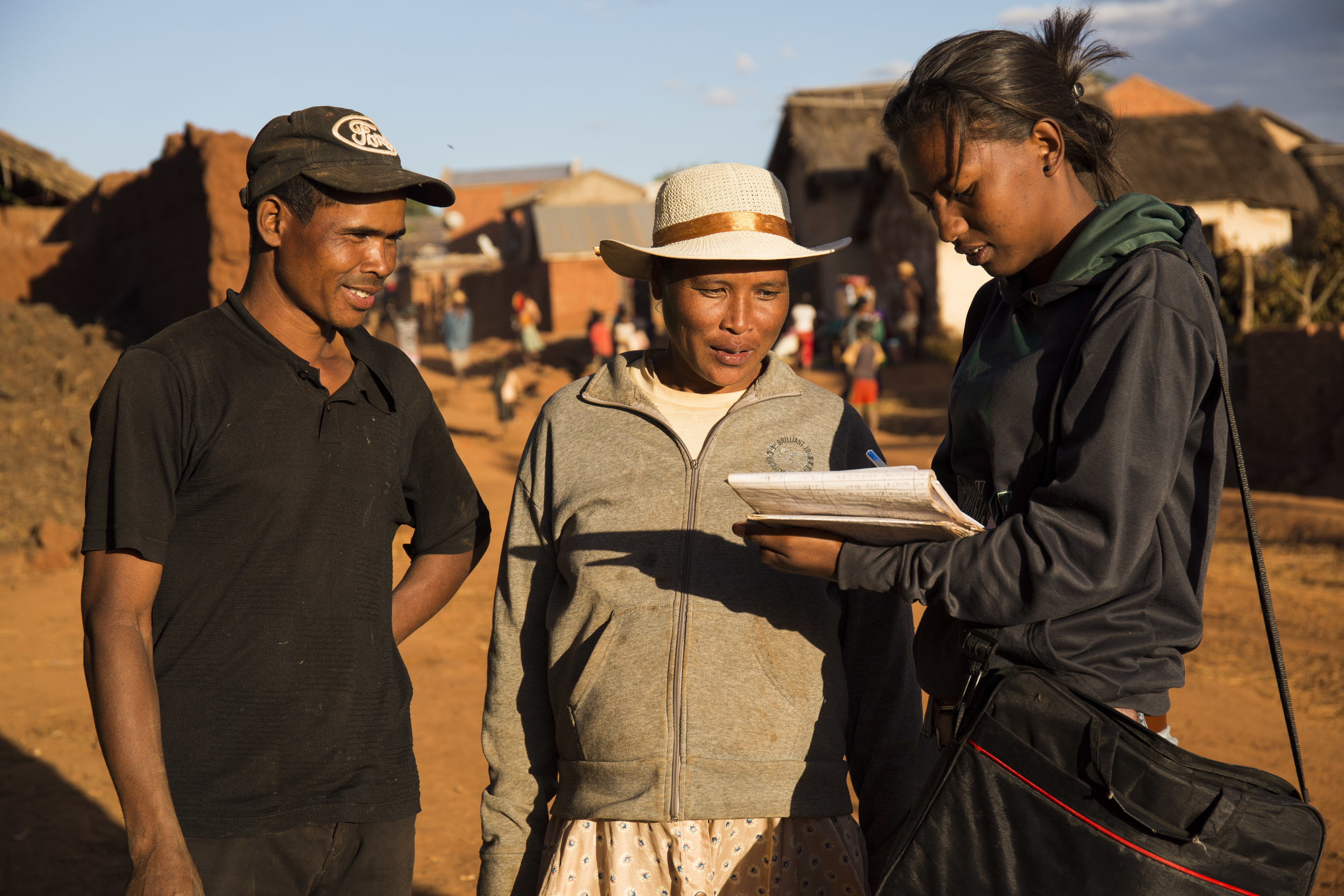The Empowering Role of Water, Sanitation and Hygiene
Water is an ‘elixir of life’ -- much more than a commodity. This vital resource is intricately linked to culture, economy and politics. However, it is also threatened: often in short supply or polluted, and can be a cause of conflict, in communities, within and between countries, and between women and men. Water can also bring people together.
This July, members of the United Nations will review progress made on the Sustainable Development Goals (SDGs) with special attention paid to Goal 10, which aims to reduce inequalities within and between countries. Equal access to clean water and sanitation is critical to reducing overall inequalities. The lack of it undermines the very foundations of development, including health, the ability of children – especially girls – to stay in school and be productive. As countries work to achieve SDG 10, access to clean water and sanitation can be a game-changer for prosperity and transformation.
That is not to say that improving access to water, sanitation and hygiene will benefit everyone in the same way. Water and sanitation have strong gender dimensions which must be considered in management and use: the day-to-day experiences of men and women with water and sanitation can be very different, and these inequalities must be consciously considered from the beginning of any intervention.
 In my experience, these inequalities can only be revealed with the help of diverse leadership.
In my experience, these inequalities can only be revealed with the help of diverse leadership.
For example, often women are assumed to be interested in, and responsible for, domestic water supply and household needs, while men are often consulted and involved in the ‘work’ of water: in financing or managing water resources. This means that any water intervention needs to take into account the impact not only on practical, everyday needs, but also on strategic interests. Access to water and sanitation, if delivered well, empowers women economically and socially. Done poorly, it may undermine women’s position at home and in the community.
Therefore, women’s leadership and decision making power in water and sanitation is critical. This is recognised, and is improving. The gender gap often found in planning, design and construction is slowly starting to narrow as women assume more prominent roles: from managing water users’ committees, to making financial decisions, to overseeing business administration, technical operations and maintenance.
This progress does not make up for the fact that women already spend 2.6 times more hours than men on unpaid activities, including caregiving and domestic work. We also need to work as a society to ensure their involvement in water and sanitation services does not further contribute to the burden of unpaid work, or decrease the ability to earn an income.
 We need the political imperative to recognise that the involvement of both women and men is integral to sustainable water, sanitation and hygiene management. Enabling policy frameworks, which are backed by resources, training and political will, are vital to developing and sustaining women’s leadership in the water sector at local, national and global level.
We need the political imperative to recognise that the involvement of both women and men is integral to sustainable water, sanitation and hygiene management. Enabling policy frameworks, which are backed by resources, training and political will, are vital to developing and sustaining women’s leadership in the water sector at local, national and global level.
Our own experience at WaterAid, across many countries, shows that women’s leadership in water management is essential to challenging unconscious male bias, and changing how decisions are made. Gender perspective influences how issues are prioritised, how budgets are allocated, and even the determination of what constitutes a solution. Diversity from leadership to the participatory level is essential if water, sanitation and hygiene services are to be responsive to a wide range of needs.
In Cambodia, WaterAid is investing in developing the next generation of water, sanitation and hygiene leaders, by collaborating with colleges, water utilities and districts, using experiential learning, internships and interacting with experts. WaterAid works with a range of partners who encourage professionals to study water, sanitation and hygiene and water resource management, and move into technical and leadership roles. The objective is to build a strong, inspired and diverse workforce of qualified and motivated leaders and technical personnel to deliver universal access to water, sanitation and hygiene.
The SDGs give us the opportunity to work in an integrated way for people, planet and prosperity. Water is essential to all three, including reducing inequalities and discrimination. As the UN reviews progress on SDG 10, this is the time for governments, businesses, NGOs and academic institutions to look at how they are investing in women’s leadership in the water, sanitation and hygiene sector, from local committees to the international stage.
Savio Carvalho is global campaigns director for WaterAid and previously worked for Amnesty International and Oxfam across different continents.
Photo 1 Credit: ©WaterAid/Neil Wissink
Photo 2 Credit: ©WaterAid/Ernest Randriarimala


